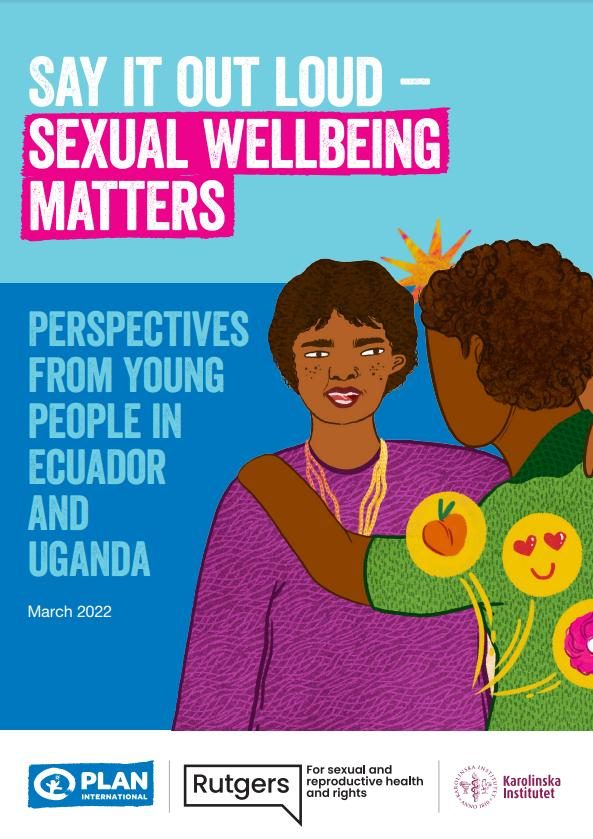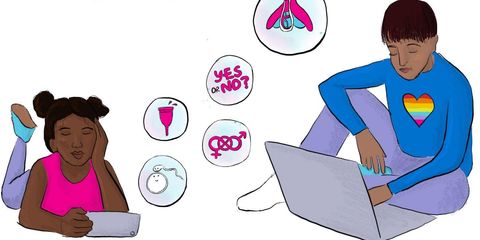Say it Out Loud – Sexual Wellbeing Matters
Perspectives from young people in Ecuador and Uganda
Listening to young people's voices on sexual wellbeing and consent – what this means for sexual and reproductive health and rights influencing and practice.

Many sexual and reproductive health and rights (SRHR) programmes are delivered through a sexual risk perspective – which means emphasising the negative consequences of sexual activity, such as unintended pregnancy or sexually transmitted infections. There has been less focus on highlighting the positive and healthy aspects of sexuality and sexual experiences.
Young people’s sexual wellbeing and their evolving capacity to give and receive sexual consent need to be better understood to be included in youth programmes and policies. With this in mind, and to inform our programming and advocacy work on SRHR, Plan International commissioned research to explore young people’s perspectives of sexual wellbeing and consent. The research involves primary qualitative data collection with young people aged 18 to 24 in Uganda and Ecuador.
Key Findings:
- Most young people did not experience sexual wellbeing fully in their relationships.
- Sexual consent is complex: it is usually communicated through non-verbal clues and is often misinterpreted, assumed or difficult to achieve.
- Violence and non-consensual sex are too often a component of young people’s sexual relationships. Gender norms mean that equality between young men and young women is rare and young women are particularly vulnerable.
- Parent-child communication is often limited and though young people wanted support and information from their parents, many parents lacked information themselves or were too embarrassed to talk about sex and sexuality.
- Young people are asking for sexuality education but, on the whole, this is not available in the communities they come from; they try to educate themselves but information from social media and their peers is often misleading.
Recommendations:
This report makes clear the need for a sex-positive and holistic multi-level approach which addresses the changes required at the individual, normative and structural level to improve adolescent and young people´s sexual wellbeing.
The report ends with concrete recommendations for SRHR programmes, policy makers and national and global practitioners, including:
- Embrace a sex positive approach – A sex-positive approach focuses on supporting and enabling adolescents and young people to explore, experience and express their sexuality in healthy, positive, pleasurable and safe ways, rather than only focusing on preventing negative health consequences. Sex-positive approaches address risks and concerns associated with sexuality without reinforcing fear, shame or taboo.
- Include adolescents and young people of all ages in SRHR work, including younger adolescents.
- Strengthen quality CSE to address positive sexuality and promote understanding of gender and power dynamics.
- Involve families so they are equipped and supported to contribute to positive sexual wellbeing.
- Challenge negative social and gender norms and tackle taboos and stigma.
- Ensure that legal and policy frameworks on age of sexual consent do not restrict adolescents and young people’s rights, access to SRHR information, education and services.
- Invest in further research, particularly in low- and middle-income countries.
Download options
Full report (English)
6.31 mb
Technical Report (English)
9.86 mb
Full Report – FRENCH
7 mb
Full report – PORTUGUESE
6.60 mb
Full report – SPANISH
6.54 mb
The research report forms part of a larger research project which also includes a literature review and a comic and film on young people’s perspectives of sexual wellbeing and consent.
Categories: Sexual and reproductive health and rights


